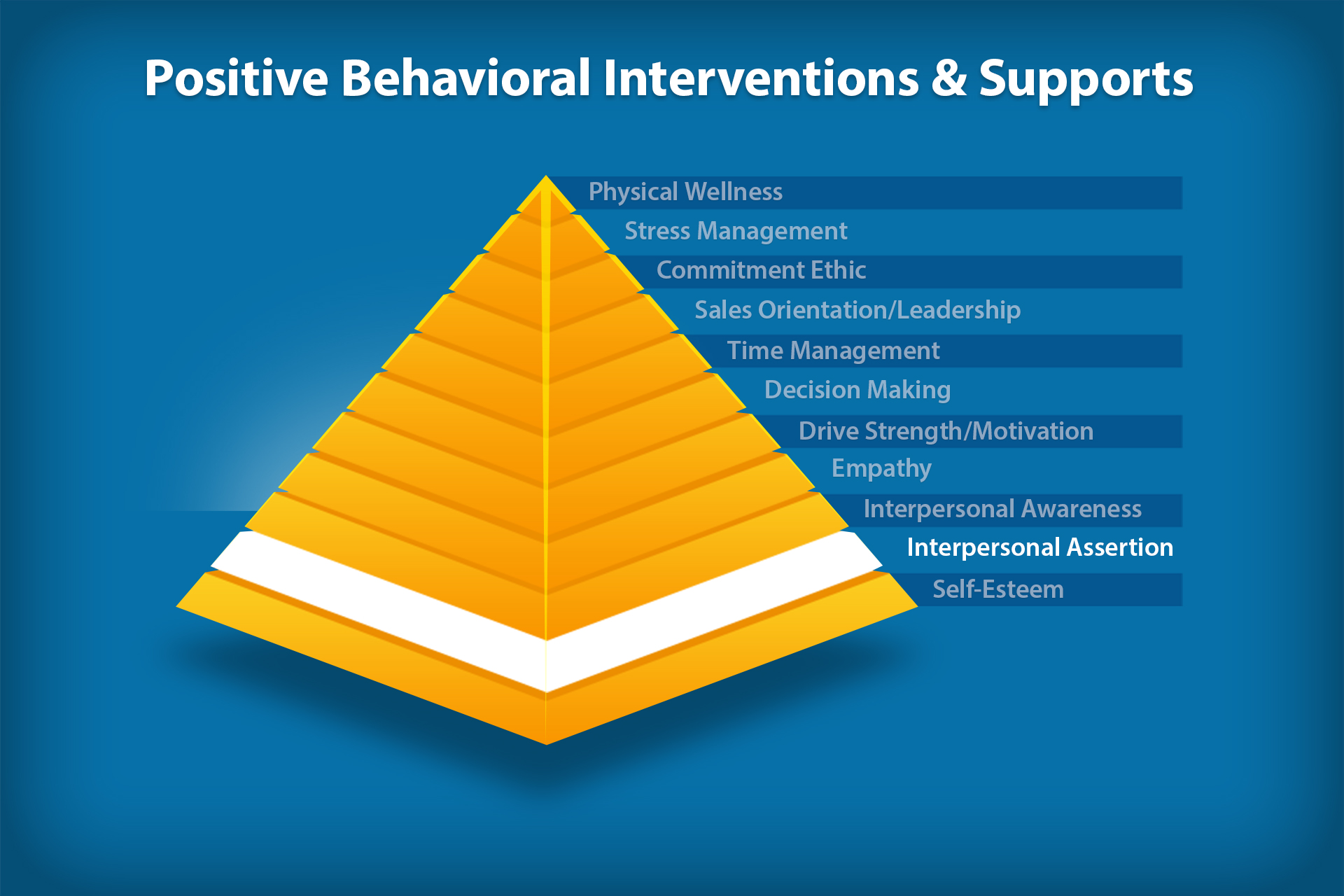
What is Interpersonal Assertion?
Interpersonal Assertion is the ability to insist on one’s rights in a good way. Assertion is a way of getting what you want without violating or offending the rights of others. A lack of assertion results in negative behaviors that cause people to hurt themselves or others. A lack of assertion is one of the principle causes of bad behavior in students. It is also a key characteristic to consider in any discussion of student behavior patterns and PBIS. Positive Behavioral Interventions and Supports (PBIS) is a term used to describe the proactive approach to establishing the behavioral supports needed for students to achieve social, emotional and academic success.
Interpersonal Assertion is the second building block for social/emotional development as measured by the Personal Skills Map. The Personal Skills Map is the core assessment in our Success Profiler Program, and the grandfather of all social/emotional learning assessments, with over 140 research papers written on its effectiveness and over 9 million administrations.

Stress & Communication
Something strange happens when people experience stress. Stress can either bring out the best or the worst in us. Why do some people act in a positive way while others act in a negative way when dealing with a stressful situation? It is not something in our DNA that makes the difference. Rather it is a learned behavior that makes all the difference. Here are three different ways peoples act under pressure. These are message sending or communication styles brought on by stress:
Assertion: (assertive communication style) positive way of getting what you want without stepping on or violating the rights of others.
Aggression: (aggressive communication style) violates, offends, or takes way another’s rights, thoughts and feelings.
Deference: (deferring communication style) to be passive, to yield, to give in to someone else, let them have their way, to give your rights to another.
Assertion is a learned behavior. Assertive people can communicate openly and clearly. Assertion is an important skill to learn, as those who don’t learn assertion will bounce from deference (fear) to aggression (anger) in their relationships. Assertion is a positive communication skill while aggression and deference are negative communication skills that occur when we fail to be assertive.
What is Your Communication Style?
Which one of the following three communication styles do you have?
- Assertive
- Aggressive
- Deferring
Consider the following chart to help you determine the communication style you use most often.

Just knowing about Interpersonal Assertion isn’t going to translate into positive outcomes for your program. If you really want to see results, you need to apply this information in a way that will help the individuals you work with set goals, manage their emotions, and develop the workplace readiness skills they need to be successful in today’s information economy.
If you need help connecting PBIS to meaningful outcomes, we’ve developed social/emotional learning standards that you can download for FREE. These standards are research-based and organized by stage of life, so you can easily identify which skills to work on with your users or students.
If you’d like to download our soft skills standards you can find them here:
